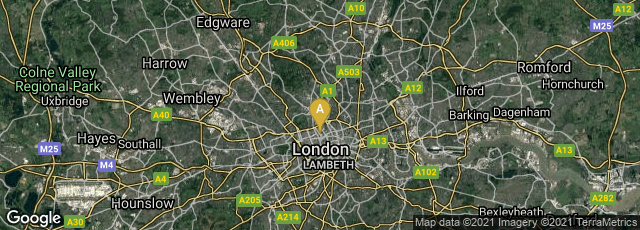

A: London, England, United Kingdom
On September 1, 1939, the day that German troops marched into Poland, German Jew Alfred Wiener opened the Jewish Central Information Office in London. This library, which was later called the "oldest holocaust museum," functioned during World War II as a private intelligence service, and Wiener was paid by British government departments for keeping them informed of developments in Germany.
In 1919 Wiener was a high-ranking official in the Centralverein deutscher Staatsbürger jüdischen Glaubens (Central Association of German Citizens of Jewish Faith, CV). As early as 1925 he identified the Nazi Party as the chief danger to the Jews of Germany and to German society as a whole. In 1933, Wiener fled Germany for Amsterdam. Together with Prof. David Cohen, he set up the Jewish Central Information Office, collecting and disseminating information about events happening in Nazi Germany. In 1939 Wiener transferred the library to London, and Wiener made the resources available to the British and other governments' intelligence departments, and the international press, especially the BBC. The library soon became known as "Dr Wiener's Library" and the name was adopted. After the end of World War II, the library used its extensive collections on National Socialism and the Third Reich to provide material to the United Nations War Crimes Commission and for bringing war criminals to justice.
In December 2011 the Wiener Library for the Study of the Holocaust & Genocide moved to 29 Russell Square, a revovated Georgian townhouse flanked by the Birkbeck College history department and the School of Orient and African Studies at the University of London.